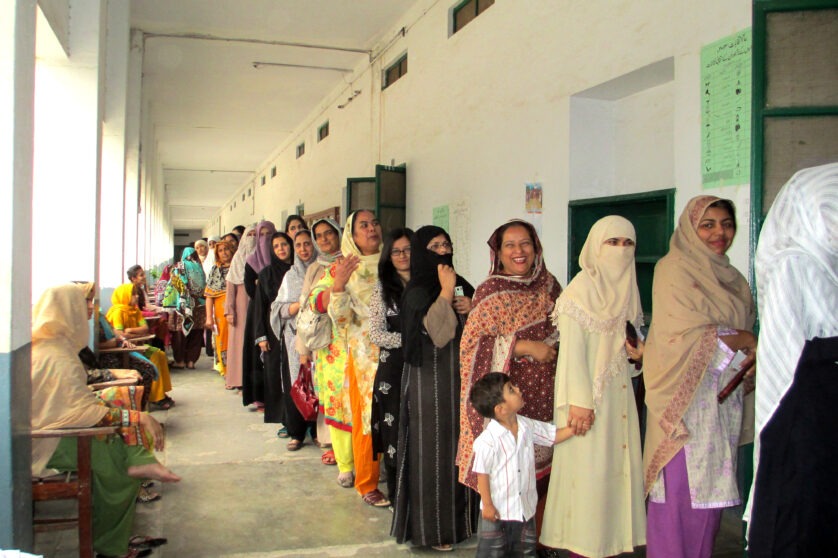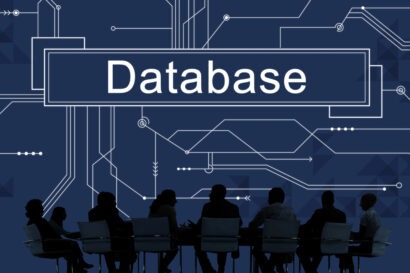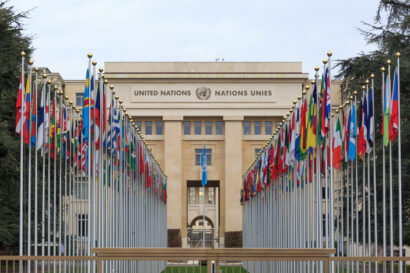Pakistan’s 2024 general elections are going ahead tomorrow amidst economic turmoil, terrorism, and regional tensions. Shunned political figures like Imran Khan (the recently jailed former Prime Minister) have raised concerns about the electoral process’s integrity. Similarly, the international community is closely monitoring the situation, recognising the broader implications of Pakistan’s electoral choices. Campaigns ahead of the elections have become a battleground for competing economic ideologies, with the three major political parties striving to present their vision for stabilising and advancing the economy. From taxation reforms to social welfare policies, the political discourse is rich with proposals targeting economic revival.
How do the three parties differ in their propositions?
Nawaz Sharif, a three-times ex-Prime Minister and leader of the Pakistan Muslim League (PMLN), outlines pro-capital actions in his party’s manifesto, aiming for a 6% economic growth over five years, focusing on industrial and agricultural development and large infrastructure projects. The party promises to increase electricity production by 15,000 MW, with a significant portion generated from renewable sources although the sector is already plagued with circular energy debt crises and experts have suggested privatisation instead of more investments. They also promise to raise the tax-to-GDP ratio from 10.4% to 13.5% with no plausible proposal on how to achieve this goal.
On the other hand, the Pakistan People’s Party (PPP), led by the young leader Bilawal Bhutto, son of the late Prime Minister Benazir Bhutto, leans towards a socialist agenda, focusing on social sector reforms and redistributive policies. It proposes a homegrown stabilisation plan through public-private partnerships, an 8% annual increase in the minimum wage, and an expansion of education and welfare programs. PPP intends to reform state-owned enterprises rather than privatising them and aims to eliminate untargeted tax expenditures, a pressing need.
Pakistan Tehreek-e-Insaf (PTI), whose incarcerated leader Imran Khan is barred from elections, prioritises education, independent foreign policy, and inclusive democracy. It proposes reducing the government’s tenure, addressing social injustices, and fostering job creation through export-led growth and tax policy overhaul. However, the party cannot contest elections with its iconic electoral “bat” symbol and consequently may not be able to form a government.
Whichever party wins, the real test for the elected government will be turning their promises into ‘actionable policies’ because Pakistan’s political landscape is such that the military plays an active role in governance and policy-making. Its role has been formalised recently through the establishment of the Special Investment Facilitation Council (SIFC), which includes high-ranking military officials. The SIFC is involved in critical decisions, including tax reforms. The military also takes the lion’s share from government revenues for its defence budget which, considering the geopolitical context, is considered sacrosanct and off limits to any political government. On top of that, the incoming government will have to deal with the International Monetary Fund (IMF). Pakistan is under a stand-by arrangement currently negotiating a loan tranche of $1.2 billion, conditional important fiscal reforms imposed by the IMF.
Pakistan’s tax system: overlooked challenges
The new government will have to implement severe austerity measures and politically unpopular structural reforms. Presently, the caretaker government has initiated a series of tax reforms by splitting Pakistan’s Federal Board of Revenue into two Boards (Inland Revenue and Customs). The outcome of this politically unpopular decision will inevitably burden the next political government.
Pakistan’s taxation system is intricate, significantly undermining its economic vitality. Despite being the sixth most populous country in the world, its 10.3% tax-to-GDP ratio starkly contrasts with the South Asian average of over 19%. The tax system prominently relies on indirect taxation, with almost 60% of the annual tax collection coming from VAT which in turn suffers from inequity as exemptions or zero ratings are granted to some sectors. The IMF has consistently demanded the removal of all such exemptions to conform with the international principles of VAT.
Tax exemptions as well as concessions for political gains reduce the tax base which has led in 2022 alone to an estimated loss of Rs. 400 billion. Moreover, the bulk of what is collected feeds debt servicing, and yet the debt burden is increasing year-on-year. For the current year, the total target for tax collection is Rs. 9.4 trillion out of which interest payable, as estimated by the IMF, will be total tax collection was Rs. 9.4 trillion out of which Rs. 8.8 trillion went to interest payments.
Tax evasion and avoidance are major problems in Pakistan, caused by inadequate tax enforcement, a cash-based economy, and ineffective tax obligations. This, in turn, limits the government’s ability to provide better public services, which then further reduces tax compliance. Despite this dire situation, political parties contesting elections in the past have unanimously ignored tax reforms in an effort to manage expectations.
Another key issue missing from the running parties’ manifestos is their approach to Agricultural Income Tax (AIT). Agriculture contributes a quarter of the GDP but is exempt from federal taxation. In parallel, provincial governments perform poorly in collecting AIT. For example, Punjab, the largest province, could collect an estimated Rs. 55-75 billion per year but in reality manages to collect less than Rs. 3 billion*. Weak provincial tax collection and financial instability compel the central government to fund local projects, exacerbating equity concerns.
Lastly, the new government will face rising urban service delivery challenges. Pakistan’s urbanisation has severely strained the current service delivery structures. Property taxation is a significant revenue source but is performing poorly due to regressive tax policy and reluctance to update rolls for political implications. For instance, revenue collection from property taxation from Punjab was less than that of Chennai, a city in India. This underperformance is a consequence of the inadequate power devolution to local governments. Different political parties suggest solutions ranging from devolution to administrative reforms. However, true empowerment of local governments requires a constitutional amendment and an independent election commission.
This comprehensive approach is crucial for a responsive democracy in Pakistan. The 2024 elections mark a political milestone, urging economic innovation, social inclusivity, and the reinvigoration of democratic ideals.
We want to thank Dr. Shandana Khan Mohmand for her guidance and suggestions which helped strengthen this blog post. Dr. Mohmand is the Governance Cluster Leader and Research Fellow at the Institute of Development Studies, University of Sussex, UK.
* Data obtained from Deputy Secretary Recovery, Board of Revenue Punjab, on 16 June, 2023



